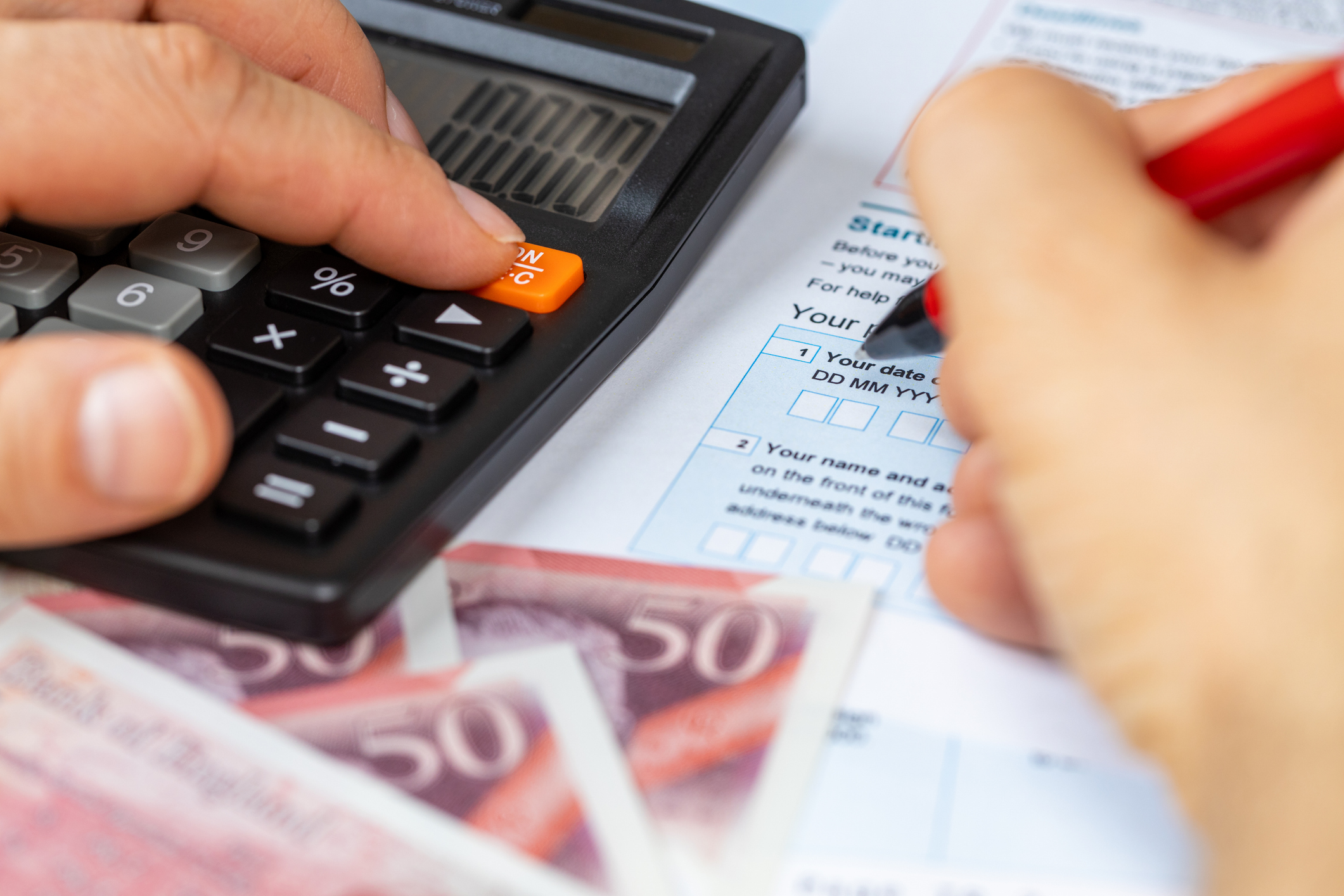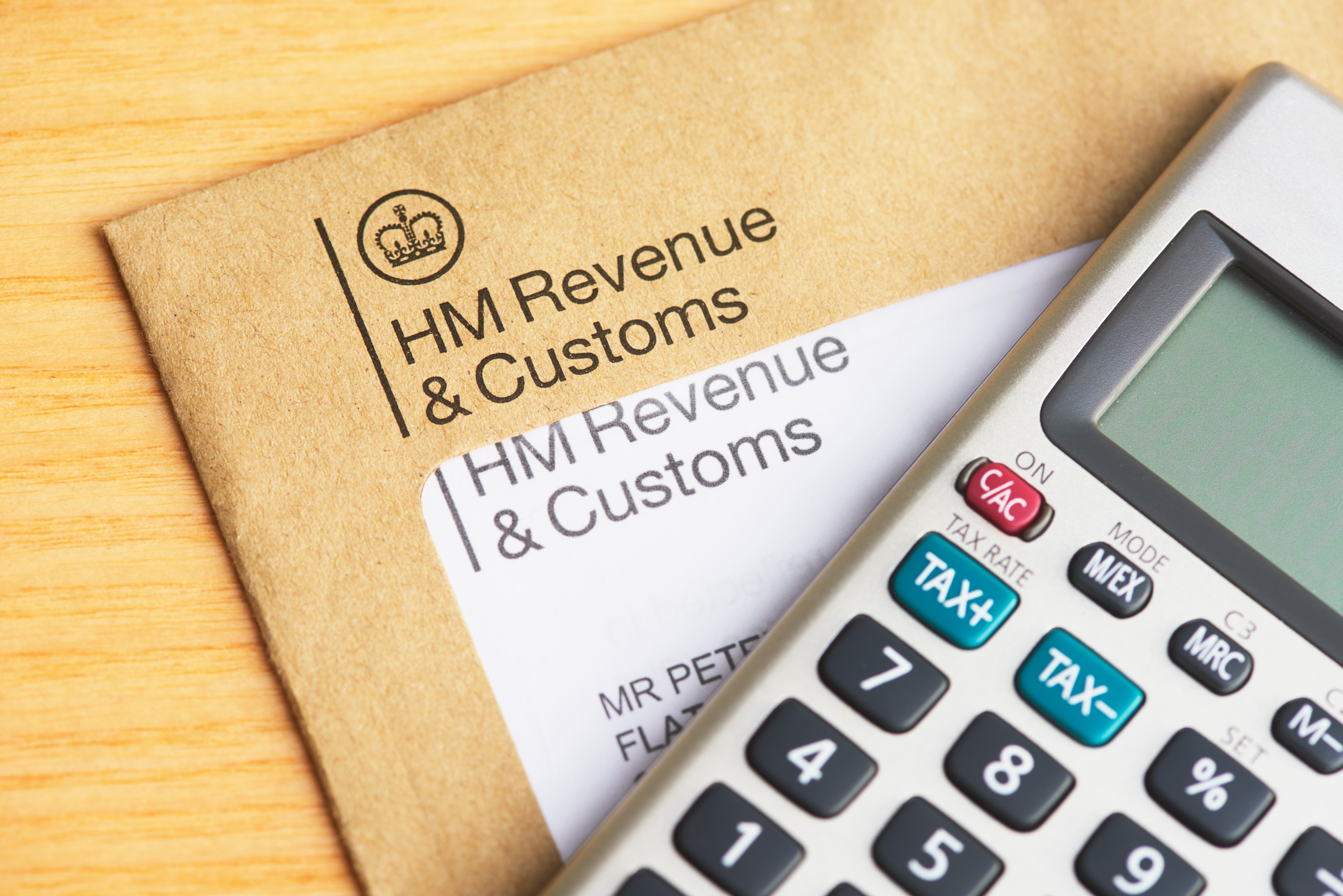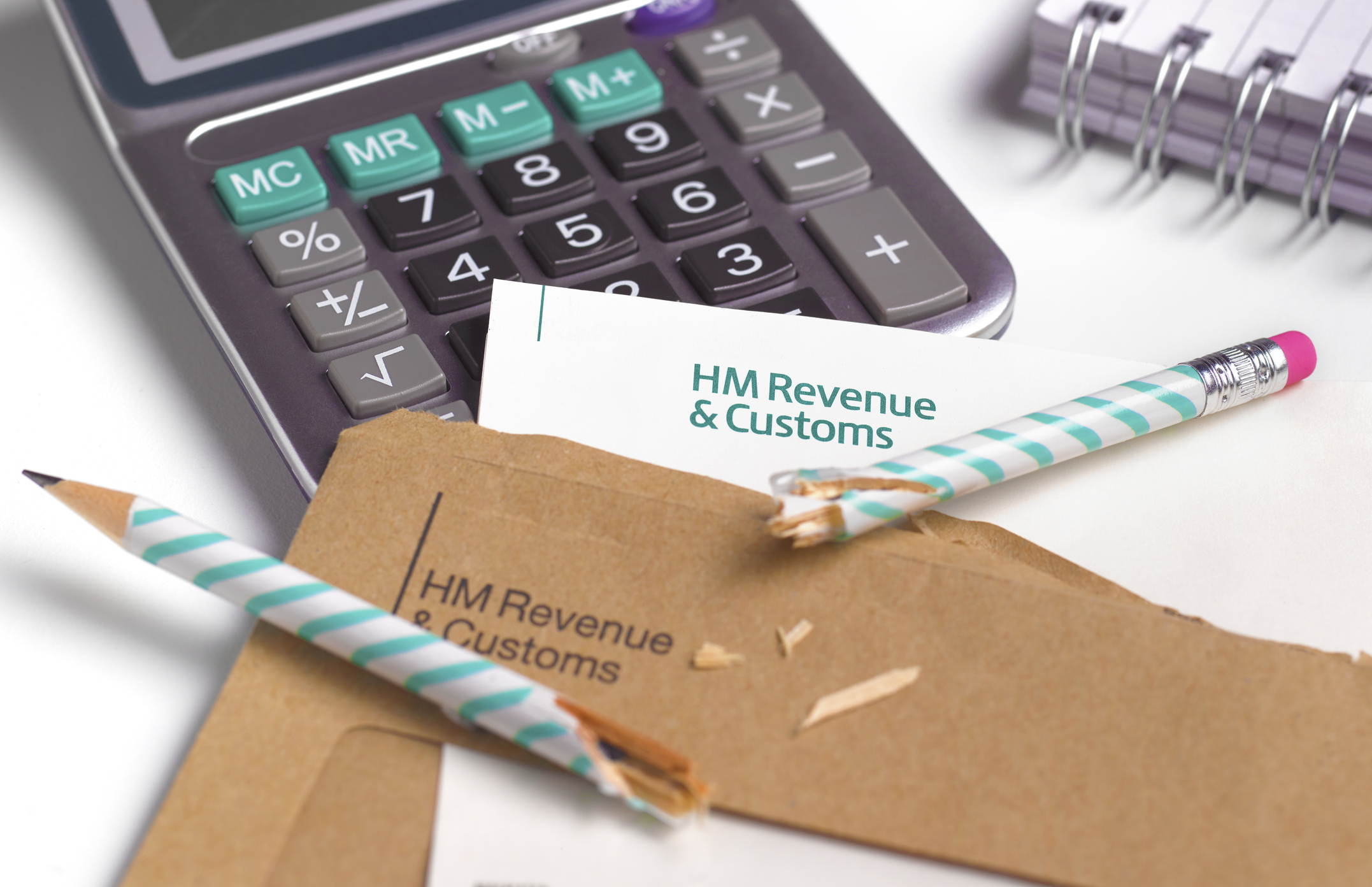Self-assessment tax scam warnings raised ahead of tax return deadline
Self-assessment tax scams are on the rise according to HMRC. We look at the common scams and how to safeguard yourself


Get the latest financial news, insights and expert analysis from our award-winning MoneyWeek team, to help you understand what really matters when it comes to your finances.
You are now subscribed
Your newsletter sign-up was successful
Want to add more newsletters?

Twice daily
MoneyWeek
Get the latest financial news, insights and expert analysis from our award-winning MoneyWeek team, to help you understand what really matters when it comes to your finances.

Four times a week
Look After My Bills
Sign up to our free money-saving newsletter, filled with the latest news and expert advice to help you find the best tips and deals for managing your bills. Start saving today!
Warnings have been raised about the rising threat of scams targeted at those who file self assessment tax returns.
Around 12 million taxpayers file a tax return each year, including the self-employed, who could be at risk as scams rise.
HM Revenue & Customs (HMRC) has urged those who file self assessments to be on their guard against scammers attempting to dupe them into sharing their personal or financial details, after having acted on thousands of self assessment scam reports over the last year.
MoneyWeek
Subscribe to MoneyWeek today and get your first six magazine issues absolutely FREE

Sign up to Money Morning
Don't miss the latest investment and personal finances news, market analysis, plus money-saving tips with our free twice-daily newsletter
Don't miss the latest investment and personal finances news, market analysis, plus money-saving tips with our free twice-daily newsletter
With the tax return deadline just a couple of months away and many people set to file over the festive period, what do you need to do in order to protect yourself from tax return scams?
How do self assessment tax scams work?
Self assessment tax scams can work in a few different ways, but all involve the scammers impersonating HMRC.
They have become more sophisticated at doing this, with recent years seeing more convincing communication from scammers, such as genuine looking emails and text messages.
Once they have convinced you that they really are from the tax man, that’s when the scam kicks in.
In some cases the scam will try to win you over by offering you something, such as a tax rebate. In order to claim this supposed repayment you will need to share certain personal and banking details, either over the phone or by following a link in an email or text message from the scammers.
However, as this is not genuine, the scammers will instead use that information either to take money directly from your accounts, or more commonly to commit identity fraud by opening financial products in your name and making off with the proceeds.
An alternative route is to threaten you, using that fear of punishment to get you to either share your details or even send money directly to the scammers.
For example, over the last few years there have been many reports around scammers claiming to be HMRC and warning victims that they have underpaid tax, with the risk of arrest if they do not clear the ‘unpaid tax bill’ immediately.
In some cases they have encouraged victims to purchase gift cards worth hundreds of pounds in order to clear what’s owed, and then read the gift card’s unique number over the phone to the scammer.
Why are self assessment tax scams likely to rise?
HMRC received 144,298 reports about tax scams in the 12 months between November 2023 and October 2024- up 16.7% annually.
Around half of all scam reports (71,832) in the last year were fake tax rebate claims, HMRC said.
What’s more, we are heading into a period of the year when they become a more common tactic for scammers.
Many people use the quieter festive period to file their tax return. With those tax bills on our minds, the promise of a tax rebate ‒ or the threat of punishment over unpaid bills ‒ becomes more acute, potentially making taxpayers more likely to fall for the scam.
The economic situation also makes them a more appealing option for scammers. While inflation is falling, it has been persistently high over the last year, and many of us are feeling the pressure on our finances. As a result that may make us more susceptible to promises of a supposed tax repayment from HMRC.
There is also the simple matter of numbers, with greater numbers of people having to file a tax return than was previously the case.
AJ Bell highlights that cuts to the tax-free limits on capital gains tax and dividends tax, as well as lower the threshold for the additional rate income tax band, means more people than ever will be filing a return.
“Last year saw a record 11.5 million taxpayers file a self-assessment return by the 31 January deadline, with rising interest rates, reduced allowances and frozen tax thresholds combining to force more people than ever before into the tax return trap," says Charlene Young, pensions and savings expert at AJ Bell.
"With this year set to break records once again, HMRC has issued a warning for taxpayers to be on the lookout for scam activity.”
What should you do if you are targeted by a self-assessment scam?
There are a few different steps you need to take if you are targeted by a self-assessment scam.
First off, it’s important to report suspicious messages directly to HMRC.
You can:
- Forward suspicious texts claiming to be from HMRC to 60599
- Forward emails to phishing@hmrc.gov.uk
- Report tax scam phone calls to HMRC on GOV.UK
It’s also worth reporting any dodgy messages to Action Fraud, the UK’s national fraud and cyber crime reporting centre.
If you fear that you have fallen for a self-assessment scam, then it’s really important that you speak to your bank as soon as possible. They may be able to step in and cancel any payments you have scheduled to the scammers, for example.
It’s also a good idea to keep an eye on your credit report. That way you can see if any applications for financial products in your name have been made, allowing you to step in and cancel them if they have come from the scammers rather than you.
Get the latest financial news, insights and expert analysis from our award-winning MoneyWeek team, to help you understand what really matters when it comes to your finances.

Marc Shoffman is an award-winning freelance journalist specialising in business, personal finance and property. His work has appeared in print and online publications ranging from FT Business to The Times, Mail on Sunday and the i newspaper. He also co-presents the In For A Penny financial planning podcast.
-
 Should you buy an active ETF?
Should you buy an active ETF?ETFs are often mischaracterised as passive products, but they can be a convenient way to add active management to your portfolio
-
 Power up your pension before 5 April – easy ways to save before the tax year end
Power up your pension before 5 April – easy ways to save before the tax year endWith the end of the tax year looming, pension savers currently have a window to review and maximise what’s going into their retirement funds – we look at how
-
 Two million taxpayers to be hit by £100k tax trap by 2026/27
Two million taxpayers to be hit by £100k tax trap by 2026/27Frozen thresholds mean more people than ever are set to pay an effective income tax rate of 60% as their earnings increase beyond £100,000. We look at why, as well as how you can avoid being caught in the trap.
-
 13 tax changes in 2026 – which taxes are going up?
13 tax changes in 2026 – which taxes are going up?As 2026 gets underway, we look at what lies ahead in terms of changes to tax rates and allowances this year and how it will affect you.
-
 How to limit how much of your Christmas bonus goes to the taxman
How to limit how much of your Christmas bonus goes to the taxmanIt's Christmas bonus season but the boosted pay packet may mean much of your hard-earned reward ends up with HMRC instead of in your pocket
-
 Over 1 million pay 45% rate of income tax as fiscal drag bites
Over 1 million pay 45% rate of income tax as fiscal drag bitesHundreds of thousands more people are being pushed into the additional rate tax band by fiscal drag
-
 'I've used my annual ISA allowance. How can I shield my savings from tax?'
'I've used my annual ISA allowance. How can I shield my savings from tax?'As millions face paying tax on savings interest, we explore how to protect your money from the taxman. If you've used up your ISA allowance, we look at the other tax-efficient options.
-
 Simple assessment explained as millions brace for unexpected tax bills
Simple assessment explained as millions brace for unexpected tax billsIncreasing numbers of people could get letters from HMRC saying they owe more tax due to frozen thresholds, under a system known as simple assessment. Here is what it means for you.
-
 What are wealth taxes and would they work in Britain?
What are wealth taxes and would they work in Britain?The Treasury is short of cash and mulling over how it can get its hands on more money to plug the gap. Could wealth taxes do the trick?
-
 When is the self-assessment tax return deadline?
When is the self-assessment tax return deadline?If you are self-employed, rent out a property or earn income from savings or investments, you may need to complete a self-assessment tax return. We run through the deadlines you need to know about